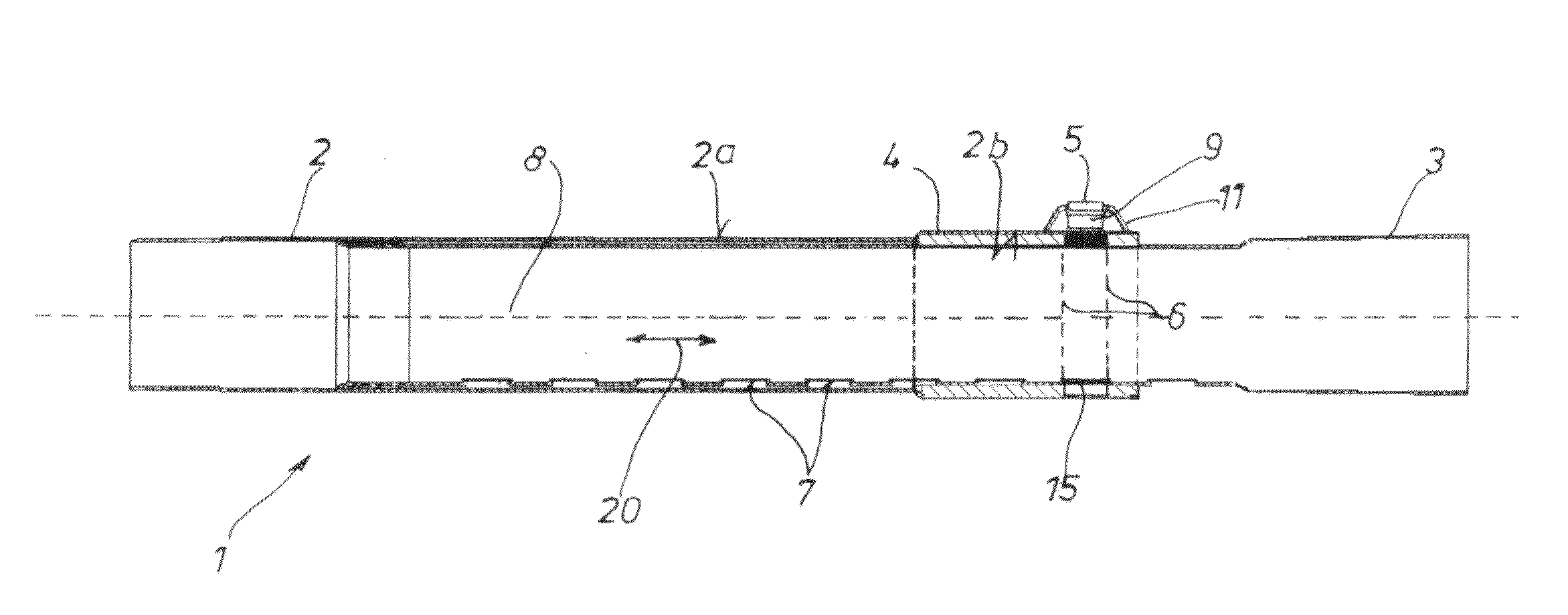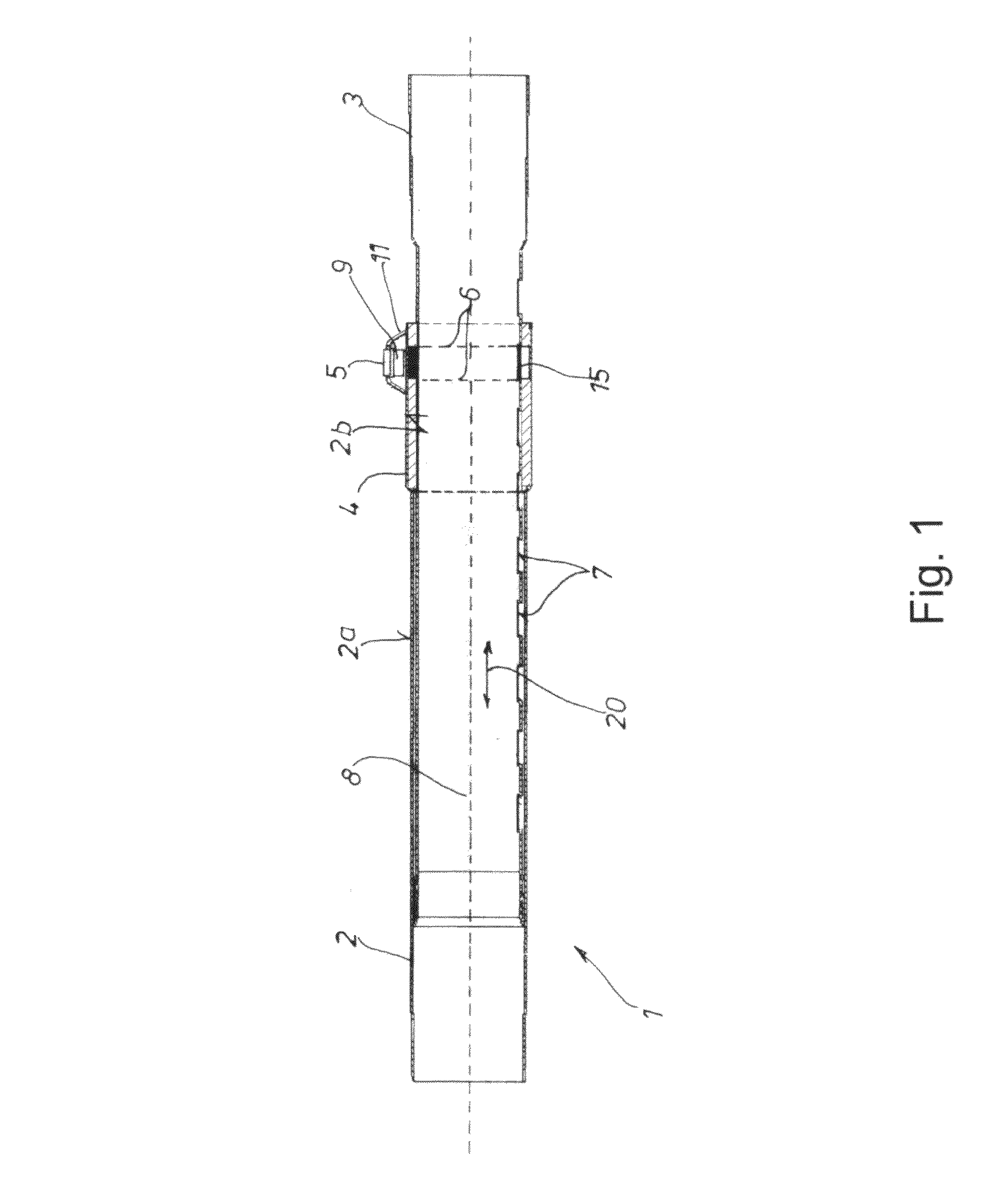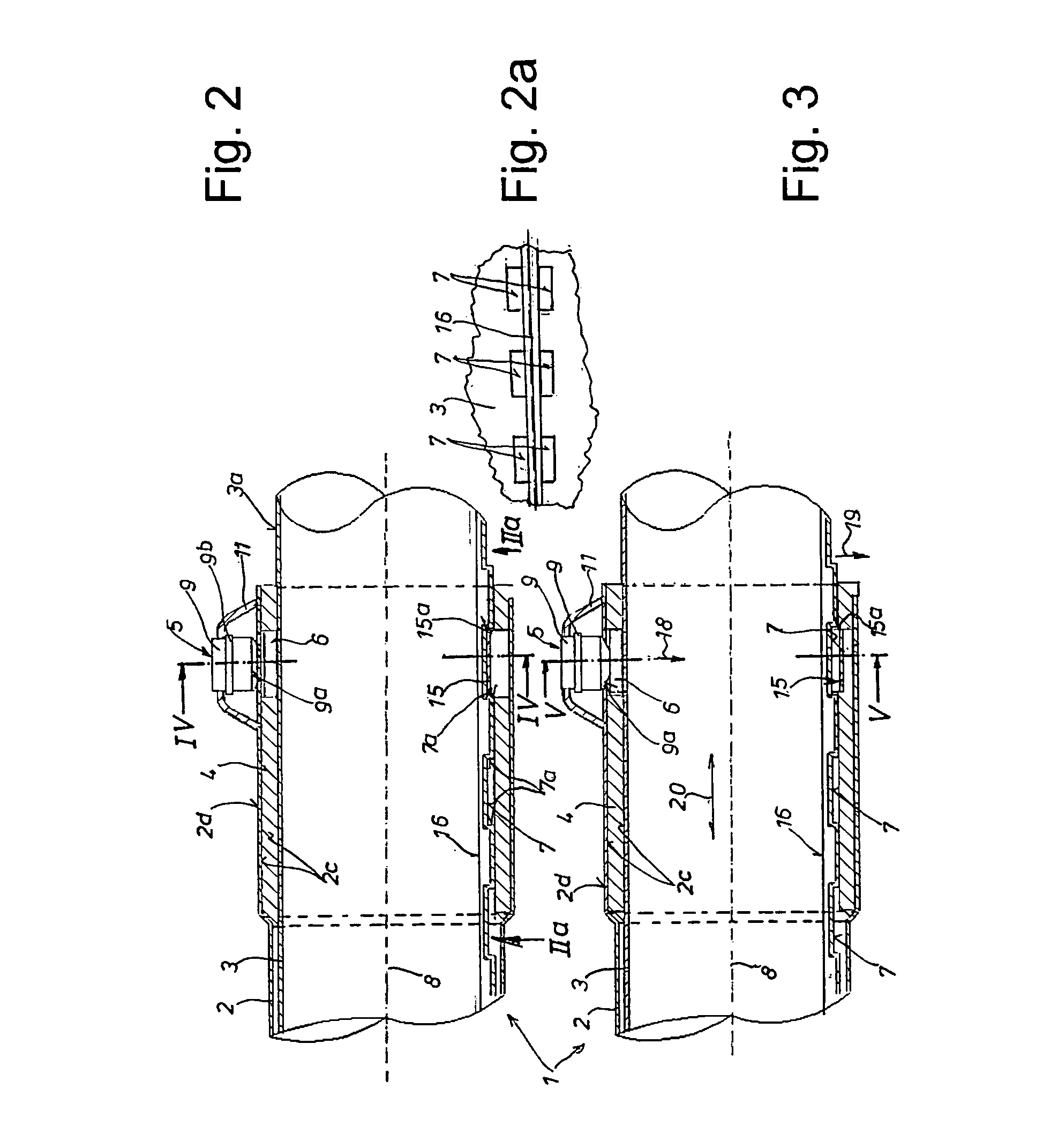Telescopic vacuum cleaner suction tube with an interlocking element in the form of a bow spring
a technology of interlocking elements and vacuum cleaners, which is applied in the direction of pipe elements, screw threaded joints, applications, etc., can solve the problems of increasing manufacturing and assembly expenditures, unusable telescopic adjustment, and increasing assembly expenditures. not only the increase of assembly expenditures, but also the increase of manufacturing expenditures
- Summary
- Abstract
- Description
- Claims
- Application Information
AI Technical Summary
Benefits of technology
Problems solved by technology
Method used
Image
Examples
Embodiment Construction
[0076]In all figures, the telescopic vacuum cleaner suction tube is always identified by the reference symbol 1, the outer tube is identified by the reference symbol 2, its inner tube is identified by the reference symbol 3, the guide sleeve is identified by the reference symbol 4, the actuating element is identified by the reference symbol 5, the bow spring is identified by the reference symbol 6, the snap-in depressions are identified by the reference symbol 7 and the longitudinal symmetry axis is identified the reference symbol 8.
[0077]The individual embodiments can essentially be distinguished by the cross-sectional shape of the bow spring 6 as well as the design of the actuating element 5 in the form of either a push-button 9 or a slide 10.
[0078]According to a first embodiment that is shown in FIGS. 1 to 8, the actuating element 5 is realized in the form of a push-button 9. FIGS. 2 and 3 also show that the bow spring 6 in FIGS. 6 to 8 is realized with the cross-sectional shape ...
PUM
 Login to View More
Login to View More Abstract
Description
Claims
Application Information
 Login to View More
Login to View More - R&D
- Intellectual Property
- Life Sciences
- Materials
- Tech Scout
- Unparalleled Data Quality
- Higher Quality Content
- 60% Fewer Hallucinations
Browse by: Latest US Patents, China's latest patents, Technical Efficacy Thesaurus, Application Domain, Technology Topic, Popular Technical Reports.
© 2025 PatSnap. All rights reserved.Legal|Privacy policy|Modern Slavery Act Transparency Statement|Sitemap|About US| Contact US: help@patsnap.com



